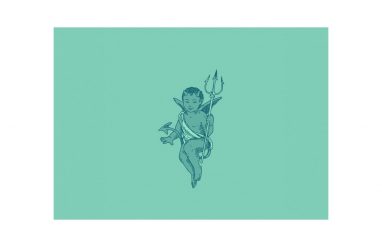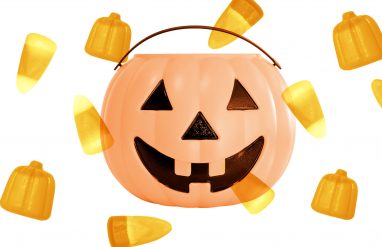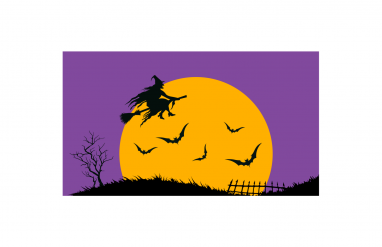French is considered by many, and particularly by the French themselves, to be an elegant and enchanting language. So it is perhaps unsurprising that so many words in English come from French—around 30%, by some estimates! That’s right, we have the French to thank not only for baguettes and berets, but also fancy, evocative terms like frisson and élan. In celebration of Bastille Day, the French national holiday, on July 14, we want to highlight a few of these borrowed words. Sure, some of them are hard to pronounce but c’est la vie (that’s life). Read on to find out more about the bon mots that will add a French flair to your vocabulary.
16 French Loanwords That Add Some Panache To English

soiree
If your party involves cocktail dresses, unpronounceable hors d’oeuvres, and swanky jazz music, it is probably a soiree [ swah-rey ]. A soiree is “an evening party or social gathering, especially one held for a particular purpose,” like a musical performance.
- We have received an invitation to an intimate soiree at the finest home in town.
An alternate spelling for soiree, and its spelling in French, is with an acute accent: soirée. However, when French words get adopted into English, they tend to lose their accent marks.
Test yourself on soiree and other celebratory words with this quiz.

debauch
Our next word describes the kind of behavior you might find at a particularly rowdy soiree. Debauch [ dih-bawch ] is a verb meaning “to corrupt by sensuality, intemperance, etc.; seduce.” It comes from the French débaucher meaning “to entice away from duty.”
- You have debauched this venerable institution by selling it off to the highest bidder.
A related word is debauchery, meaning “excessive indulgence in sensual pleasures.” Read our About This Word entry on debauchery for more on this hard-partying term.

alley-oop
In 2021, Bastille Day happened to fall around the same time as the NBA finals, so it’s fitting that a classic basketball term actually comes from French: alley-oop. An alley-oop [ al-ee-oop ] is “a quick-score play in which a high, arching pass is made to a teammate close to the basket, who leaps to catch the ball and in midair drops or stuffs it through the basket.” The word comes from the French interjection allez-hop.
The expression alley-oop was originally used to indicate and draw attention to physical effort, like lifting up a heavy object or, in the case of circus acrobats, jumping off a platform. By 1960, alley-oop had come to be used in English to describe the basketball play.
- In the final seconds of the game, Sandra threw an alley-oop to Jocelyn for the win.

insouciant
Insouciant [ in-soo-see-uhnt ] is a word for when you don’t have a care in the world. It is an adjective meaning “free from concern, worry, or anxiety; carefree; nonchalant.” It comes from the French soucier meaning “to worry.” The in- part is equivalent to the English prefix un-. Insouciant therefore literally means “not worried.”
- The child gave a cheeky, insouciant smile while being scolded for disobedience.
Insouciant has a negative connotation, as it implies irresponsibility or a cavalier attitude.

puissant
Our next term is a strong vocabulary choice. Puissant [ pyoo–uh-suhnt ] means “powerful, mighty, potent.” The word entered English from Middle French, where it also meant “powerful.”
- The lion gave a puissant roar that could be heard for miles around.
Like many words that come from French, puissant is a bit of a formal, fancy term.

pique
Pique [ peek ] is a verb with a variety of meanings, including “to affect with sharp irritation and resentment, especially by some wound to pride.” In other words, pique is the feeling you have when you are slighted in some way. Pique comes from the Middle French piquer meaning “to pick.”
- It piqued Nate that his girlfriend didn’t laugh at any of his jokes.
Pique can also be used as a noun meaning “a feeling of irritation or resentment, as from a wound to pride or self-esteem.” It’s often found in the phrase fit of pique, meaning “a state of irritation.”
Do you know the difference between pique, peak, and peek? Find out here.

obeisance
Obeisance [ oh-bey-suhns ] is a noun meaning “a movement of the body expressing deep respect or deferential courtesy, as before a superior; a bow, curtsy, or other similar gesture.” More commonly, though, it is used to mean “deference or homage.”
- The king demanded obeisance from his subjects.
Obeisance comes from the Old French verb obéir, meaning “to obey.”

terroir
According to the wine authorities, the only real champagne comes from the Champagne region of France. Otherwise, it’s sparkling wine. That’s because terroir [ ter-wahr ], or “the environmental conditions, especially soil and climate, in which grapes are grown and that give a wine its unique flavor and aroma,” is essential to the creation of champagne and other wines. Terroir can also be used more generally to refer to the environment where any foods are grown or raised.
- The hot, dry terroir of the Douro Valley is what gives the red wine grapes grown there such a strong flavor.
Terroir comes from the French for “soil, land.”
Bundle up and take a closer look at climate and how it differs from weather.

mirepoix
Many of the French words that have made their way into English have to do with cooking. That’s because the French take great pride in their cuisine. One of these French cooking terms is mirepoix [ mir-pwah ], “a flavoring made from diced vegetables, seasonings, herbs, and sometimes meat, often placed in a pan to cook with meat or fish.” A traditional mirepoix is made from carrots, celery, and onion.
- Every chef knows that the key to a good chicken stock is to start with a good mirepoix.
The word mirepoix is named for the duc de Mirepoix whose chef de cuisine (or executive chef) was said to have developed this base.

laisser-aller
Our next term is good for describing those who act with insouciance. Laisser-aller and the related laissez-aller [ le-sey-a-ley ] is a French expression meaning “lack of constraint, freedom.” It is essentially a less common version of the expression laissez-faire, an economic theory that there should be minimal government regulation of the markets.
Laisser in French means “to leave” or “to allow.” Aller means “to go.” Laisser-aller therefore literally translates to “to allow to go.”
- We weren’t pleased at the laisser-aller attitude with which the students were managed at the school.

savoir-faire
Savoir-faire [ sav-wahr-fair ] is another expression made up of two verbs. The first is savoir meaning “to know.” The second is faire meaning “to do.” Literally, then, savoir-faire translates to “to know to do.” Put more elegantly, savoir-faire is a noun meaning “knowledge of just what to do in any situation; tact.”
- Every negotiator knows that having the savoir-faire to manage any disagreement is more important than speaking the language perfectly.
Savoir-faire is associated with confidence, competence, and grace.

gallant
The word gallant [ gal-uhnt ] makes us think of courageous knights slaying dragons. That’s because gallant means “brave, spirited, noble-minded, or chivalrous.”
- Patrice was touched by Simon’s gallant attempt to fix her car, even though he couldn’t get it to run.
The word gallant ultimately comes from the Old French verb galer meaning “to amuse oneself, to make merry.”

tout à fait
Tout à fait [ too ta -fe ] is a French adverbial expression meaning “entirely, completely.” (The grave accent over the /a/ here is not optional.) It is a common expression in French, and occasionally it will pop up in English to add a little French flair to the proceedings.
- The trainer was tout à fait content with the progress his client had made weightlifting.

auteur
If you’re a film buff, you might be familiar with the expression auteur theory. Auteur theory is “a theory that the director is the chief creator of a film and gives it an individual style that is evident in all aspects of the finished product.” The word auteur [ oh-tur ] in this expression means “a filmmaker whose individual style and complete control over all elements of production give a film its personal and unique stamp.” Some examples of film auteurs are Alfred Hitchcock, Spike Lee, and Sofia Coppola.
- The auteur was infamous for being difficult to work with, but no one could deny that he made incredible films.
Auteur is the French word for “author.”
Learn the origins of why we refer to movies as “the silver screen” and other film terms.

frisson
This next word gives us goosebumps every time we hear it. Frisson is a noun meaning “a sudden, passing sensation of excitement; a shudder of emotion; thrill.”
- We felt a frisson of terror when we opened the large, creaky door of the abandoned mansion.
A frisson isn’t an overwhelming feeling, it’s just a momentary emotion.

élan
The word élan is one that should make you sit up and take notice. Literally, it means “dash,” as in “to move quickly.” More commonly, though, it is used figuratively to mean “impetuous ardor” or “vivacity.”
- Chef Robert was known for his cooking videos where he threw ingredients together with great élan and pizzazz.
It’s thought that the word élan comes from the French élancer meaning “to throw (a lance or dart).”

These beautiful, complex words have a lot to offer. Do you feel inspired to add a dash of Français to your vocabulary? You can take the plunge and review all of these French-flavored terms in a list form here.
The next time you find yourself at a soirée munching on canapés, you can meet the moment with all kinds of French terms at your fingertips.
Feeling confident about your knowledge of these terms? We have a handy quiz ready for you then!










